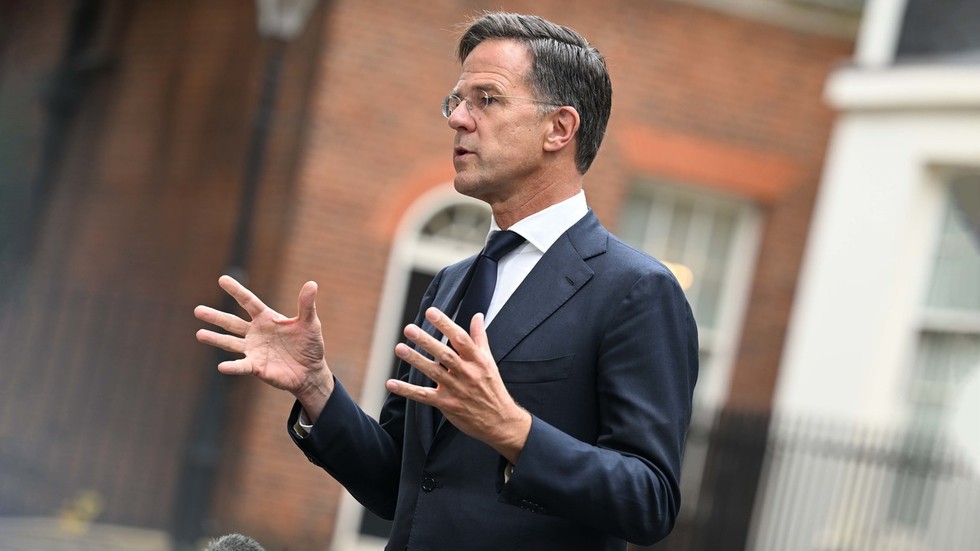A new NATO command specifically tasked with coordinating Western military aid to Ukraine will help Kiev tip the scales on the battlefield against Russia, the bloc’s new chief, Mark Rutte, has claimed.
Rutte, who took over as NATO secretary-general earlier this month after serving as prime minister of the Netherlands for more than a decade, made the remarks during his first visit to the NATO Security Assistance and Training Ukraine (NSATU) command based in Wiesbaden, Germany. He was accompanied by American General Christopher Cavoli, who is NATO’s supreme allied commander Europe, as well as other senior officials.
The NATO chief also met with German Defense Minister Boris Pistorius and talked with troops, praising their work. The new command, Rutte claimed, would “make a real difference for Ukraine on the battlefield and ‘for our own security,’” according to a NATO press release.
Rutte also dismissed concerns that the center could become a target for Russia, adding he was sure that NATO would be able to “defend itself if someone just raises a finger,” as quoted by German media.
NSATU, which was announced by ex-NATO chief Jens Stoltenberg in July, consists of approximately 700 personnel and is meant to provide military training and equipment to Kiev earmarked by the bloc and its partners. The command, which essentially has the same mandate as the US-dominated Security Assistance Group-Ukraine, was established amid Western concerns about the possible return of Republican presidential candidate Donald Trump to the White House.
The former US president has repeatedly criticized the Western approach to the Ukraine conflict, promising to cut support for Kiev and end hostilities within 24 hours if elected.
Russia has consistently denounced Western arms shipments to Kiev, arguing that they only prolong the conflict while making NATO a direct participant in the hostilities. In early September, Russian President Vladimir Putin said Moscow’s frontline advances in recent weeks could be measured in square kilometers in Donbass. He added that Kiev’s large-scale incursion into Russia’s Kursk Region had failed to divert the focus of Moscow’s forces.
Read the full article here
